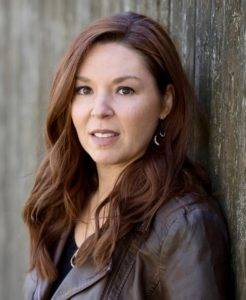I’ve found that a misconception exists in the young adult genre. Not from the writers who create it or the teens who read it, but from adults who think they understand it. Specifically, I’ve encountered people who think that “writing for teenagers” means dumping a bunch of cheesy morals onto a page as you step onto your writing soapbox. Yeah, that’s kinda not true.
Now, young adult (YA) novels span a huge spectrum. You’ve got your squeaky clean books—like Meg Cabot, who’s fabulous—and you’ve got your more taboo novels—like the Gossip Girl series, which is also fabulous. I personally think my Amor and Summer Secrets series falls somewhere in between—actually, I thought my books leaned closer to Meg than Cecily. There’s no cursing, sex or drugs in my stories; in fact, my main character, Mariana, has her first kiss at age 15.
But I’ve still gotten my fair share of criticism, like whether featuring a gay adult cousin is controversial (since when?). And whether my series depicts a “casual treatment of eating disorders.”
It’s true that Mariana’s best friend, Madison, is a ballerina who’s obsessed with every calorie she puts into her mouth. No one outwardly discusses Madison’s eating habits with her, and she never ends up in a hospital with a feeding tube down her throat. So I guess that could mean to some that my portrayal is “casual.” I, however, think it’s realistic.
I have plenty of friends who, unfortunately, struggled with food in their teen years. And for most of them, their eating habits (or lack there of) went relatively unnoticed by their parents. They never got counseling, and they ultimately found a way to turn their mindset around. It doesn’t mean I’m condoning eating disorders, or that you shouldn’t get help if you need it. It means that I’m trying to create a realistic character based on my life experience, and not force a message into my story that doesn’t belong. Amor and Summer Secrets is not a book about eating disorders.
Nor is it a book about underage drinking. Mariana has her first alcoholic drink in the novel. During that time she is with family, at her uncle’s house, in Puerto Rico where the drinking age is 18. No, Mariana is not 18. But she’s spending the summer immersed in a culture that doesn’t view alcohol the same way we do in the states. Spend time with my family in Utuado, and you’ll see what I mean. The culture is almost European in that way; and if I forced our laws and beliefs into a story where they clearly do not fit that would make me a pretty crappy writer.
Same goes for Mariana’s brother, Vince. The story starts off with him complaining that he can’t spend the summer traveling with his friends. Why can’t he go? Because he got arrested when he was 16 for underage drinking at a party in suburban Philadelphia. His father no longer trusts him the way that he used to. Now, I grew up in suburban Philadelphia. I know that that storyline is realistic. But it doesn’t mean that I’m condoning underage drinking. It means that I’m creating a character, Vince, who is consistently portrayed as irresponsible while also intelligent and athletic.
Characters are layered. They have flaws, just like people. They face very real problems, just like people. And they don’t always handle them the way that priests, doctors, or policeman would like. But I’m not writing an After-School Special where every girl who has sex gets pregnant, and every teen who smokes a cigarette gets lung cancer.
Not that dance fights are not an effective way to get your message across (in the above case, I think the message is don’t wear purple?).
I don’t feel it’s my job as a novelist to preach about social issues. My job is to write an entertaining and realistic story that teens will relate to and will want to read. I purposely avoid injecting any message that will ring false while treading a line of social responsibility that I feel comfortable with.
And I don’t feel like there’s anything happening in the YA genre, even the most scandalous books, that’s not occurring on TV or in movies. Yet, I feel we’re held to a different standard, and often that standard leads to censorship. And if there’s anything I will get on a soapbox for, it’s the right to free speech. There’s an issue I’d like to see tackled in an after-school special.
POP CULTURE RANT: October Road
I just found out that October Road was canceled and will not return with a new season this winter (late to the news, I know). I’m disappointed. I liked watching about a novelist who’s my age and who wrote a story about his high school classmates, struck it rich, and has Bill Bellamy as a publicist. Now I’ll never know if his high school girlfriend’s son is really is, and if he goes on tour with U2 to promote his novel (because yes, that last one was an actual plotline). R.I.P. fictitious novel guy. I hope you’re reading your book on stage with Bono somewhere in Never, Never, Land.

I’ve talked to several novelists who’ve had the same problem with people asking them when they’re going to write “real” books. Shows how much those people know. I should be moving to the YA division at Simon & Schuster this spring, so comments like that annoy me. Remember, your job as a novelist is to tell the truth as you know it. Definitely don’t be “preachy,” as teens can spot that a mile way. Just keep doing what you’re doing because no matter what, you can’t please ’em all.
–Linda
Oh, and I saw Twilight yesterday. If you liked the books, then you should like the movie, since it follows it well. I’d wondered about the glowing, too, and found it was handled well with CGI. You’ll see soon enough…I hope you enjoy it!